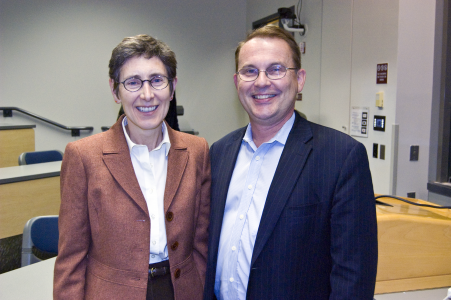
Editor’s note: This was originally published Nov. 17 on the Boston University engineering website. It was written by Gabriella McNevin.
“Aside from oxygen, silicon is the most abundant material on earth’s crust,” stated Vanderbilt University Engineering Dean Philippe Fauchet while speaking as part of the ECE Distinguished Lecture Series at Boston University.
On Oct. 29, Fauchet’s lecture audience sat waiting to learn how silicon has evolved in the last 20 years to become an almost universal material outside electronics. He answered their anticipation with a disclaimer.
“I will not cover the details of the extensive research. I will give a tour.”
Thus, Fauchet began a lecture, entitled “Nanoscale Silicon as an Optical Material,” to share a big picture view of a wide-ranging subject. He provided an overview on the history of silicon research, and insight on how it may be practically applied for mass-market consumption. He reviewed properties of bulk silicon and techniques by which it may be exploited in research.
In the last 20 years, researchers have expanded and repurposed silicon for use in new industries. Fauchet elaborated on breakthrough silicon biosensor technology that can lead to Ebola detection equipment. Early work was considered to be a success, but was not adapted for wide-use in the health care sector. Its detection capacity was not considered sensitive enough.
Currently, Fauchet is working to advance research on silicon biosensors for the detection of viruses such as Ebola. Fauchet and his team are developing technology with increasing sensitivity and the ability to concentrate affected Ebola viruses.
Fauchet has been dean of the School of Engineering at Vanderbilt University since 2012. He has founded a successful startup, has over 400 publications, and is a Fellow of SPIE, OSA, IEEE, APS, and MRS.